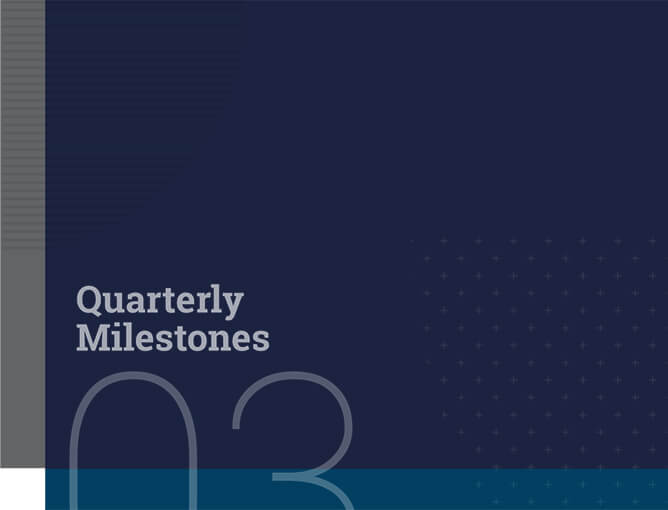
Atul GuptaPartner

Parvathy TharamelSenior Associate
Weighed down by government orders, Indian employers are still adapting to redesign workspaces and resume operations amidst the prolonged pandemic. While Covid-19 related developments continue to take the spotlight, the Indian employment framework is also undergoing other changes which impact business operations. Given that companies are facing never-seen-before challenges and potential implications for non-compliances, it is important for employers to keep track of the amendments and align their practices.
Key Developments
-
Mandatory vaccination requirements
During the second quarter, the Union Government continued to maintain that administration of vaccines is voluntary. However, several State governments issued orders mandating that establishments should only permit employees who have been vaccinated to attend work.
A high-level summary of vaccination requirements that were introduced across a few locations during the second quarter are:
- Bangalore: Employers should ensure 100% vaccination of its staff and undertake the cost for such vaccination.
- Tamil Nadu: All establishments that are permitted to operate should ensure that their employees are vaccinated. Guidelines also require family members of employees to be vaccinated with 2 doses of the vaccine.
- Kerala: Employees are required to get vaccinated or present negative RT-PCR reports to be allowed to work in private offices.
- Maharashtra: All establishments whose staff are fully vaccinated can operate with full capacity. Government guidelines mandate employers to maintain vaccination records of employees.
As the Central Government hasn't mandated vaccination for citizens so far, the constitutional validity of State government orders mandating vaccination remains debatable.
-
Judicial trends in vaccination
Various High Courts handled matters in connection with mandating Covid-19 vaccination during the second quarter. While the judicial trend has been against coercive vaccination, there have been instances where weightage was given to larger public interest over an individual’s right to refuse vaccination.
The views of various courts are summarised below:
-
2 July 2021: Guwahati High Court (Aizwal Bench) in Re Dinthar Incident Aizwal v State of Mizoram and Ors.
The Court ruled that the Mizoram government’s directions restricting non-vaccinated persons from earning their livelihood as well as from free movement to procure essential items was arbitrary.
-
19 July 2021: Guwahati High Court (Itanagar Bench) in Madan Mili v Union of India
The Bench held that the order of the State Executive Committee of Arunanchal Pradesh disallowing non-vaccinated persons the permit to enter the State to undertake developmental works (in both public and private sector) was violative of the Constitution of India. Accordingly, a stay was imposed on the order.
-
28 July 2021: Guwahati High Court (Kohima Bench) in Aniruddha Babar v The State of Nagaland
In this case, the Bench imposed a stay on the order of the Nagaland government requiring employees of Nagaland Civil Secretariat and Directorates to either be fully vaccinated or produce a Covid-19 negative test report every 15 days as a condition to attend work. The Bench found the order to be prima facie violative of the employees’ rights under the Constitution of India.
-
9 August 2021: Supreme Court in Jacob Puliyel v Union of India
A petition was filed requesting data on the clinical trial and effects of vaccines, and for declaring that any orders mandating vaccines, including those which make it a precondition for accessing any benefits or services, is a violation of rights of citizens and unconstitutional. The Supreme Court has issued a notice seeking a response from the Central Government, which response is awaited. Meanwhile, the Court remarked that the petition pressed personal autonomy against public interest, and observed that unless everyone is vaccinated, no one is safe. The matter is still pending for hearing.
-
11 August 2021: Gujarat High Court in Yogendra Kumar v Indian Air Force (IAF)
In this case, the Gujarat High Court recognised an IAF officer's refusal to get inoculated on the ground that he has a right to receive treatment of his choice and vaccination is voluntary. Accordingly, the court passed an interim order directing the IAF to conduct a fresh inquiry, taking into account the officer’s issues with the vaccination.
Given the varying judicial positions on the issue of employee vaccination, it would be prudent for employers to factor these developing trends while formulating their approach towards vaccination. A risk assessment should be carried out before initiating any adverse action against employees who refuse to get vaccinated.
-
-
Amendment to the Karnataka notification allowing establishments to operate 24 x 7
As a step towards reviving the economy, the Government of Karnataka had, on 2 January 2021, issued a notification that allowed shops and commercial establishments to remain operational 24x7 in Karnataka (Notification). The Notification stipulated that one of the conditions to operate 24x7 was that work beyond 8 hours in a day and 48 hours in a week would be regarded as overtime. This conflicted with the existing provisions under the Karnataka Shops and Commercial Establishments Act, 1961 (Karnataka S&E Act) which stipulates a 9-hour standard workday. This led to a lot of confusion for employers as to which provision would apply and concerns about the penal consequences prescribed under the Notification for non-compliance.
On 20 July 2021, the Karnataka Government issued an amendment to the Notification clarifying that any work beyond 9 hours in a day and 48 hours in a week will be regarded as overtime. This aligns with the requirements under the Karnataka S&E Act and brings respite to employers.
-
Extension of deadline to link Aadhaar with Universal Account Number in certain regions
Section 142 (on applicability of Aadhaar) of the Code on Social Security, 2020 (Code) has come into force imposing a requirement on employees to establish their identity through Aadhaar for availing various social security benefits. Other provisions and schemes under the Code have not come into force yet and the Union Minister of State for Labour and Employment issued a clarification that the benefits to employees cannot be denied for want of Aadhaar.
However, the Employees' Provident Fund Organisation (EPFO) which manages provident fund contributions has passed a circular on 1 June 2021 (EPFO June Circular) making it mandatory for individuals to link their Aadhaar with their Universal Account Number (UAN) by 1 September 2021. As per the EPFO circular, electronic filings regarding provident fund contributions can only be made in respect of those members whose UAN is linked with Aadhaar. However, observing that only a small percentage in certain regions and establishments have been able to comply with the Aadhaar linking requirement, the deadline has been extended till 31 December 2021 for establishments in North East region and for certain classes of establishments such as beedi making, building and construction and plantation industries across India.
The EPFO June circular has been challenged before the Delhi High Court. The matter is sub judice and more developments are expected on this front.
Covid-19 related regulations are likely to remain in force at least till the end of this year to contain the spread of the virus. Separately, there is a lot of anticipation on developments in connection with the new labour codes, particularly around finalising delegated legislations so that the codes can be brought into effect during the next fiscal year.











